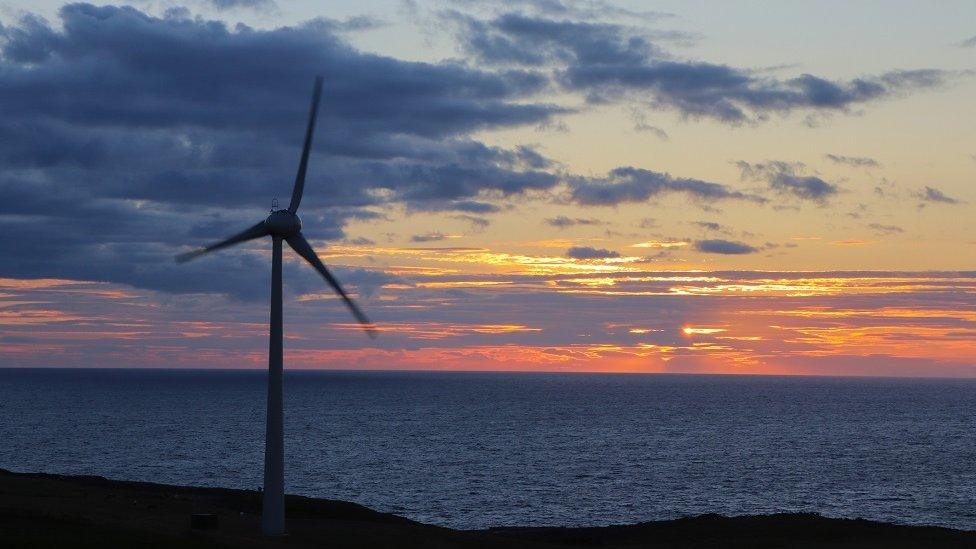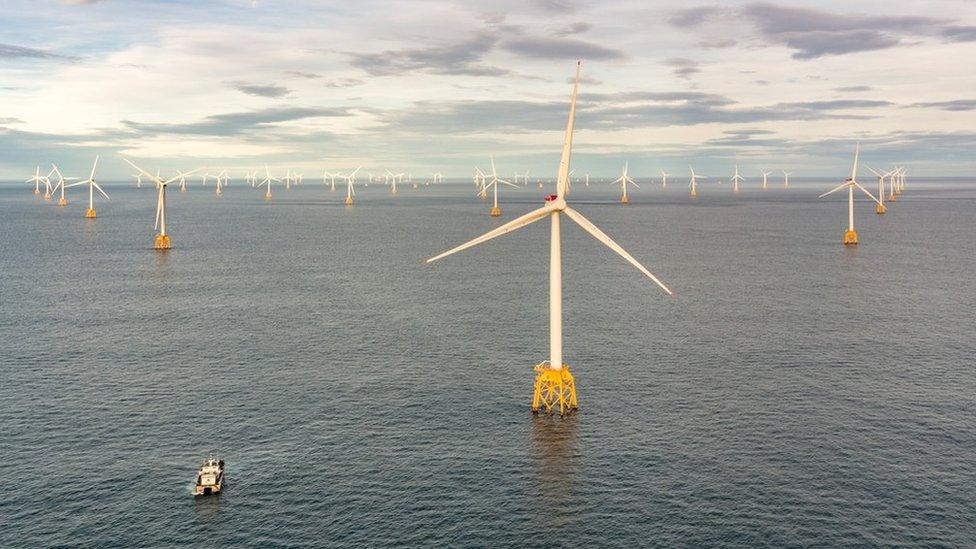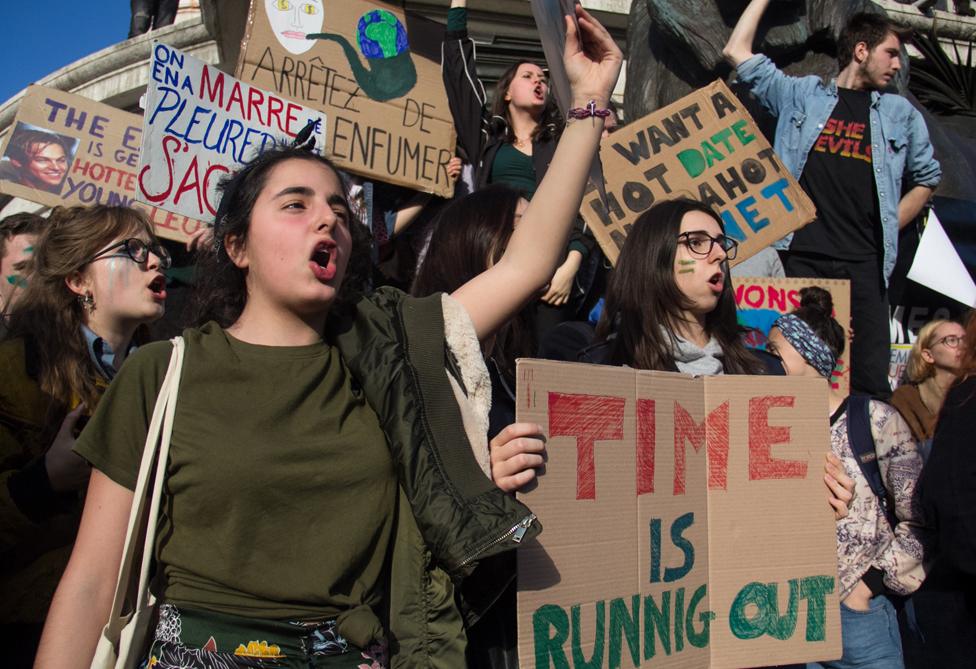Scotland's Energy future 'faces major obstacles'
- Published

Scotland faces "substantial obstacles" in the drive to cut carbon while keeping energy supplies reliable and affordable, a study has said.
The Royal Society of Edinburgh said compromise and trade-offs would be needed to help meet future energy needs.
The society's experts have called for a new independent Scottish energy commission.
Both the Scottish and UK governments have committed to cutting carbon.
At the same time, Scotland's big energy companies have been investing in green energy.
And the UK oil and gas industry has said "it is listening" to concerns about climate change.
The Royal Society of Edinburgh's report, external came after a two-year investigation, which included speaking to experts, industry figures and the public.
It said that in the last few decades, Scotland had manage to virtually eliminate the burning of coal, while being able to produce 100% of its electricity from renewable sources on days when "conditions are favourable".

Scotland has seen significant investment in offshore wind projects
But the report called for more to be done, including :
Cutting energy demand
Energy investment decisions should be considered by the Scottish and UK governments "in a timely manner"
Increasing the ability to store energy
Tougher rules on making new housing and other buildings more energy efficient
Increase investment in trials of community energy schemes and "energy education" in schools, colleges and universities.
Strathclyde University's Prof Rebecca Lunn, who co-chaired the society's inquiry, told BBC Radio's Good Morning Scotland programme: "In Scotland, a large part of our electricity is renewables, but only about a quarter of our current energy consumption is actually electricity - most of it is in heat and transport.
"We still have nearly 80% of oil and gas, and we need to take that from oil and gas into something that is low carbon, which is a really significant challenge."
Prof Lunn said converting gas-burning domestic heaters to run on heat coming from beneath the ground was one of several options - but added that these types of projects were expensive.

Concerns about climate change have led to a global youth movement
"Ultimately, we need to do things differently, so we need to increase the volume of renewables, but that's not gong to be enough to produce what we require in the long run," she added.
"Energy is likely to become more expensive and we need to combat that because we already have social justice issues in Scotland around what heat people can afford."
The Royal Society of Edinburgh report said no single energy policy would solve the issues it highlighted, while pointing out that many methods of generating energy had advantages and drawbacks, including:
Carbon capture and storage could limit climate damage, but needed "a very high level of continued investment"
Developing new green energy schemes like solar and tidal, and a move from natural gas to hydrogen, could significantly cut carbon, but also require high levels of investment
Supplying energy from one source to multiple buildings, known as district heating, could help people struggling to pay energy bills, but has "high up-front costs"
"Significant oil and gas reserves" in the UK continental shelf provide a secure energy source, but burning fossil fuels continues to make the climate change issue worse
Shale gas and fracking could improve energy security, but there is "significant uncertainty" over how much is stored underground.
Nuclear power stations "provide Scotland with a significant amount of secure, reliable generation", but building new ones, managing nuclear waste and decommissioning result in "substantial costs".
The report came as big energy companies like Scottish Power and SSE have been investing in green energy projects.

For the latest business news as it happens, follow BBC presenter Andrew Black's updates each weekday morning on BBC Radio Scotland's Good Morning Scotland programme between 0600 and 0900.